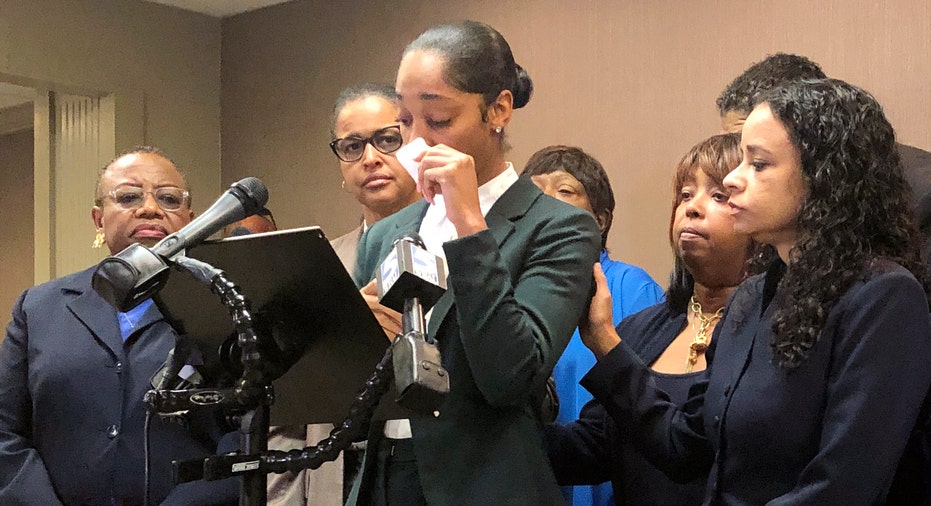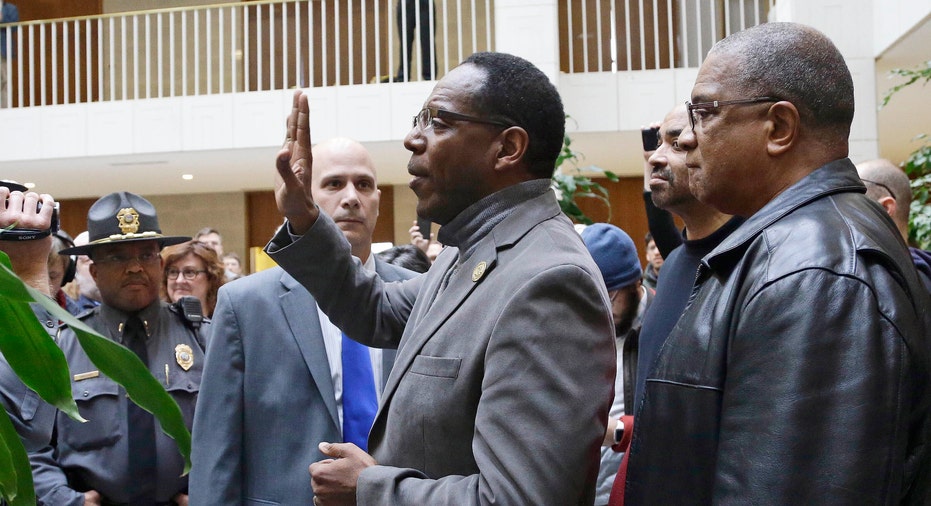Woman's lawsuit against NAACP seeks at least $15M from former boss
Jazmyne Childs is seeking at least $15 million for her emotional and mental distress
RALEIGH, N.C. (AP) — A woman who repeatedly told the national NAACP that her supervisor in the North Carolina conference had sexually harassed her is suing the national group and her former boss
Jazmyne Childs is seeking at least $15 million for her emotional and mental distress that she says civil rights organization condoned through its inaction.
In the lawsuit filed Monday in Durham County court, attorneys for Childs said she was sexually harassed by the Rev. Curtis Gatewood when she was youth and college field secretary for the state conference in 2017. She suffers from depression, anxiety, nervousness, and insomnia, the lawsuit says.
The lawsuit seeks more than $5 million in compensatory damages and more than $25,000 in punitive damages on each of three claims: battery, assault and intentional infliction of emotional distress.
In this Sept. 25, 2019 file photo, Jazmyne Childs, center, cries during a news conference in Raleigh, N.C., as she describes the sexual harassment she says she endured while employed by the North Carolina chapter of the NAACP. Childs is suing the national NAACP group and her ex-supervisor, the Rev. Curtis Gatewood, according to a lawsuit filed Monday, Feb. 3, 2020. (AP Photo/Martha Waggoner, File)
GET FOX BUSINESS ON THE GO BY CLICKING HERE
NAACP officials and Gatewood did not immediately respond to a request for comment from The Associated Press.
The national NAACP knew about the harassment when it received a report from an outside investigator in October 2017 that concluded that Gatewood harassed Childs, yet took no action, the lawsuit says.
The NAACP “is liable for the misconduct for Gatewood because the National NAACP ratified Gatewood’s conduct,” it says.
Gatewood, who was interim field director and managed the state conference NAACP staff, “suddenly resigned” in June 2017, the lawsuit said. However, he continued to show up at events attended by Childs, even after receiving a cease-and-desist letter in December 2017, the lawsuit said, leading to her resignation.
Childs, who was hired in January 2017, resigned in August 2018 because she feared Gatewood “would continue to stalk and intimidate her,” the lawsuit says.
The lawsuit says that Childs, now 27, first became fearful of the now 60-year-old Gatewood on Feb. 6, 2017, when he closed an office door as they met to discuss a rally. “While talking to her, he kept looking her up and down in a sexual and intimidating manner," the lawsuit says. "Ms. Childs was afraid.”
Similar harassment continued over the next few months, the lawsuit says.
NAACP PRESIDENT CHIDED WOMEN WHO MADE SEXUAL HARRASSMENT CLAIM
On May 2, 2017, Childs was in a conference room with the lights off as she prepared for a co-worker’s farewell party, it says. “Suddenly, she felt someone’s breath on the back of her neck and then felt someone press his penis up against her buttocks,” the lawsuit said, adding that Gatewood was behind her.
“Why are you hovering over me. That’s gross. Move,” Childs yelled, according to the lawsuit. Gatewood said he was looking for a receipt and left the room, it says.
Childs described the harassment at a news conference in September after she had written several letters to NAACP President Derrick Johnson. She wrote him in June and twice in September and sought a disciplinary hearing for Gatewood in her second letter. The NAACP responded to none of the letters, she said.
Johnson suspended Gatewood from membership the day after Childs’ news conference, pending a hearing on her allegations.
Johnson also postponed the state conference elections, scheduled for October, which included a race for president between Gatewood and Rev. Anthony Spearman, the incumbent.
At the state conference that was held Oct. 5, Johnson told the delegates that he didn’t know about Childs’ accusations against Gatewood until he received her letter on Sept. 11, even though email records showed he received the outside investigators’ report almost two years earlier.
“He publicly scolded and rebuked Ms. Childs for going to the press and not handling the matter within the organization,” the lawsuit said. “Ms. Childs was present and heard President Johnson’s remarks.”
CLICK HERE TO READ MORE ON FOX BUSINESS
In October, Gatewood said in an email that while he never intentionally harassed anyone, he realized his actions “may have been received as sexual.”
He was less conciliatory in January, when he emailed several people, including some NAACP officials, asking that Childs and others be removed from NAACP membership.
“Therefore, I would respectfully and strongly suggest on one hand, you use the list of individuals I have provided, and graciously remove each of these members per the NAACP Constitution & Bylaws,” he wrote in the Jan. 14 email. He also asked that the NAACP restore his membership.
Attorneys for Childs declined comment on lawsuit.






















